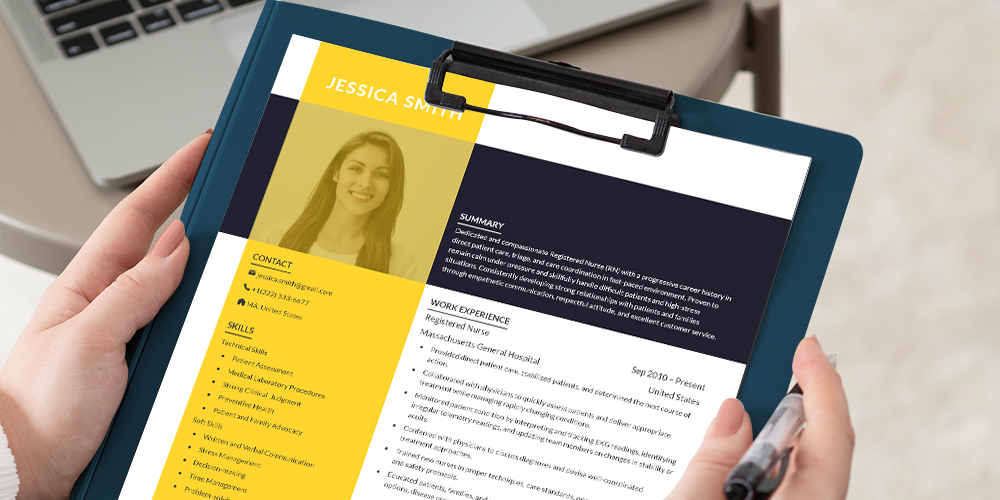
The Importance of Talking About Your Skills
Talking about your skills is an undeniable necessity when applying for a job. You want to showcase your abilities to convince the recruiters that you are suitable for the position. Hence, developing an elaborate skills description is one of the pillars of a functional resume.
You want to seem confident and make a good impression simultaneously. Say you want to buy a new gadget. Before placing your order, you look at different websites to read the pros and cons of each model. Then, you ask around to see what other people think about that gadget. When you are sure that the gadget is suitable for you and covers your needs, you buy it.
From the recruiter’s point of view, hiring a new employee has the same mechanics as buying a new gadget. Via a resume, you are providing the recruiter with information to decide whether their company needs you or not. And then if it does, why?
Being already familiar with the importance of skills and abilities for resumes, you might wonder how to write them. There are a few primary factors that you need to consider before starting, and we are going to review them in this article.
Let’s dive in.

Figure Out Your Skills
The first step is to identify your skills. Knowing who you are and your strengths and weaknesses enables you to have a comprehensive self-image. This will also come in handy in the interview process. We gain our skills through different channels, including experiences, challenges, paid and unpaid jobs, relationships, educational environments, and interests.
Two Primary Skills to Put on a Resume
1. Hard Skills
The professional skills you have picked up over the years are considered your hard skills, including foreign language skills, coding abilities, typing speed, an industry-specific certification, bookkeeping, SEO marketing, computer skills, etc. You need to recognize your technical skills and abilities that help you function and progress in your position.
Hard skills for a resume are essential and have to be written to depict your qualifications in the best way possible. One of the advantages of knowing your hard skills is that they help you identify the positions fit for you, and you can build a future upon them.
2. Soft Skills
Other skills to list on your resume include your personal attributes, personality, and communication abilities, such as adaptability, leadership, work ethic, compromise, problem-solving skills, empathy, dependability, etc. Soft skills for a resume represent the kind of person you are.
HR managers usually target prospective candidates with soft skills that increase the likelihood of them becoming effective and influential employees. Mainly having remarkable hard skills is not enough. An effective employee can communicate with others effectively, bring the tasks to the finish line, handle the pressure, and help the company thrive.
List all of your skills and abilities and categorize them into soft and hard skills. Incorporating the combination of hard and soft skills in your resume elevates the image you are trying to show and places you in confidence and professionalism.
resume_3_dark_banner
Identify Skills Employers Want to See
Knowing what employers are looking for in the applicants can give you a clear-cut idea about the position and your possible future working in it. Usually, this knowledge assists you in recognizing the most suitable position for you and guarantees your success and progress. Some features are customary to be included in the resume like teamwork, willingness to learn, proficiency in Microsoft Office, and conscientiousness.
When applying for a specific job, it would be good to mention that you have the abilities and skills aligned with the recruiters’ targets in the resume skills section. Remember, you want to impress the recruiters and convince them to give you an interview. The closer you can place your abilities and skills in the position you are applying to, the higher your chance of being selected for the interview.
Represent yourself as a knowledgeable, skillful, reliable, and self-sufficient person. That way, you are advertising yourself for your desired position. It is also essential to show that you have used the skills that you mentioned before or how you have developed the skills listed on your resume in the first place.
Interestingly, some recruiters use automated Applicant Tracking Systems (ATS) to look for specific keywords in the received resumes. Therefore, it would be better to search the keywords related to your field before starting the process and include them in your resume. You can check the company’s website that you have in mind for keywords. Make sure that the keywords you choose are as close to the job you are applying for as possible.

Avoid Mentioning Every Skill
People apply for a position because they are willing to commit to a job to have better life quality, stability, and progress. Although it is fantastic to list your skills and abilities, not all of your skills should be included. For instance, your prospective employer does not need to know that you can make the impression of several celebrities. This action is an entertaining gig at parties but does not possess pedagogical implications.
cover_4_light_banner
Resume Skills Examples
Examining several resume skills sections shows great tricks for developing appropriate content. A resume is a formal piece of writing developed using an organizational language that most companies and institutions mutually accept. Reading examples gives you a nice picture of what you need and where you should start.
You can access countless examples online when you search for them. Also, you can specifically search for those examples that share your field of work or are written for a specific company as a rule of thumb. After all, why not use others’ experiences to get the outcome you are hoping for?
To know more about the resume skill section, you can check out our article titled: “How to Write a Resume Skill Section?” through our Library.












